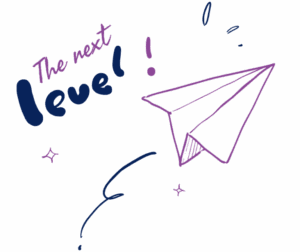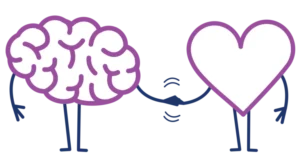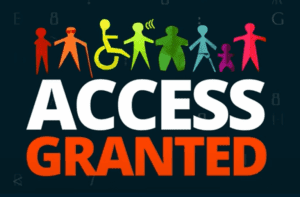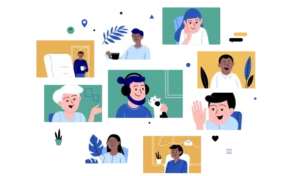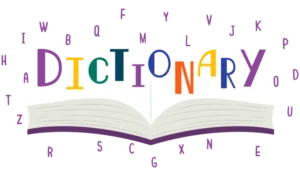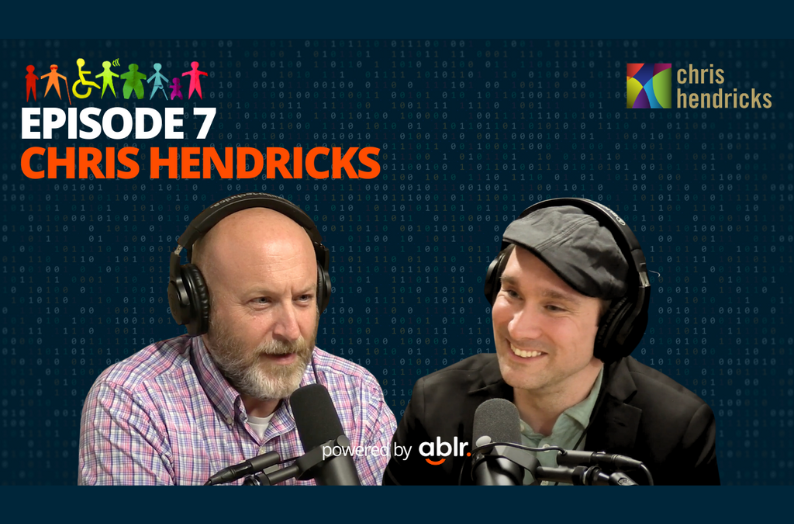Access Granted: Chris Hendricks Part 1 Transcript. Tune in wherever you listen to podcasts.
Mike Ianelli: Welcome back to Access Granted, a podcast powered by Ablr. I’m your host, Mike Iannelli. Today, I am so excited to introduce you to an extraordinary individual and dear friend. Chris Hendricks is a gifted musician, songwriter, and disability inclusion advocate who travels worldwide performing and giving inspirational keynotes.
Throughout this conversation, you’ll quickly realize how remarkable Chris is and why I wanted to have him on Access Granted to share his story. Let’s jump right in.
So here’s the reality. I want to talk about some hard stuff.
Chris Hendricks: Okay.
Mike Ianelli: Because here’s the thing. We, we talk, this is our sixth podcast and we have two of each, there’s been like 11. We talk about accessibility.
We talk about inclusion. We’re going to talk a lot about inclusion today too, but I also want to talk like my hope today with you was a couple of things. One, I want to raise awareness around your career where I can.
Chris Hendricks: Thank you.
Mike Ianelli: You’re an amazing artist. And when we talked and in your life is really just
fascinating. So Chris, introduce yourself. Tell me and tell our audience a little bit about yourself.
Chris Hendricks: So, my name is Chris Hendricks. I’m a singer songwriter. I’m a professional recording artist. I’m an entrepreneur. I’m a keynote speaker. I’m a father. How I connected with John is, is really just because we’re both such kindred creative spirits.
I think I was giving a talk. It had to do with work and, and persons with disabilities. And that’s where I first connected with John and we just started talking about our mutual desire to make an impact and, and creativity and it was love right off the bat, man. And as far as how you and I met, like I met you through John, sort of, like, sort of, kind of.
Mike Ianelli: It was initially, and then we met at that other event where you sang for us, you were our keynote.
Chris Hendricks: That’s right, and then we did the keynote at NC State, I believe. Much of my life has been performance and entertainment. That’s my heart. I’ve been singing since I was four years old. I was originally going to be a physical therapist when I first went to college.
And then I got my first job was at Disney world and.
Mike Ianelli: You were going to be a physical therapist.
Chris Hendricks: I was.
Mike Ianelli: So did you know that I was in physical therapy school?
Chris Hendricks: No, I did not. The reason why I really chose to pursue music is because I guess I had what you would call a friend intervention. A bunch of my friends in Orlando kind of surrounded me a couple nights before I was to leave and go back to North Carolina. And they said, man, you really got to give this, this music thing a shot. And so I was like that, you know, they convinced me. And so when I got home, I went into my mother’s bedroom at like one or two o’clock in the morning. Which is a terrible idea, by the way, if you want to give your parents really heavy news, waking them up at 2 AM is not a good move.
And yeah, as I walked in and I was like, yeah so I know I was going to be a physical therapist and actually make money. But I decided to hold a guitar and strum and go la la la for the rest of my life. What do you think?
Mike Ianelli: And your dad wait, correct me if I’m wrong. Wasn’t your dad a musician too?
Chris Hendricks: So my dad was a musician.
My dad was a musician and he’s brilliant. He’s a country singer. My mom saw the direction I was going, and she was terrified for me. You know, she was like, well you’re a grown man. I can’t, I can’t stop you from doing this, but I don’t think it’s a good idea. And if you’re going to do this, you’re going to, you know, you’re going to do it on your own.
You got to figure out your own way. And then, you know, fast forward, I got really blessed early on. I got really lucky. I was playing in a coffee shop in Chapel Hill one day, and a gentleman with means we’ll say, came in and saw me performing. And said, what do you do? And at the time I was working at Best Buy, and I was like I work at Best Buy.
And he said, not anymore you’re not. And he took me under his wing. And all of a sudden I went to Nashville and New York and Los Angeles and performing became my life, for years and years. Until about five, almost six years ago now, where I became a dad. And the moment I became a dad, I hit pause on music and speaking cause I was doing both pretty regularly.
I stopped doing that so that I could focus on being a dad and got a different job as an insurance salesman of all things. Just so I could be around, be present. Just this past year really, where I had a come to Jesus moment with my partner in life, Heather. Who sat me down and was like, what are you doing?
Your heart, your soul is music and performing and speaking and genuinely connecting and inspiring people. Why aren’t you doing that? And I was like, well we need money. And she goes, ah, we’ll find it. Don’t worry about it. I give her a lot of credit. Heather really pushed me to turn that part of me, myself on.
Mike Ianelli: You know, my partner’s name is Heather as well.
Chris Hendricks: On again, boom.
Mike Ianelli: It’s two, bro.
Chris Hendricks: Ain’t they beautiful?
Mike Ianelli: And I can sing. No, I can’t sing. I’m just kidding. When was the first time, as a child, that you knew or recognized that you were different than other children?
Chris Hendricks: I would say four years old. And I had a, I had an interesting experience that could go both ways. Actually, I’ll tell you about two.
So the first thing I realized is that people gravitated towards me in an empathetic way on the playground. So everybody was always trying to help me. Whether I needed help or not. Oh my gosh, can I be with you? Can I pick this up for you? Can I carry your bag? It was like, and I was like, well, this is like the greatest thing on earth, right?
But then the other side of that is, you know, I had some early doctor’s appointments with this. And I I’m blessed to have some incredible doctors. I went to Duke and UNC, both of them. But I had this guy who, just this one moment really stands out to me. I call him the angry Santa Claus. And I call him the angry Santa Claus cause he looked like Santa Claus, except for he was super, super depressed at existing for some reason. And I, I didn’t understand that. Cause I thought
Mike Ianelli: An oxymoron in himself.
Chris Hendricks: Santa Claus was supposed to be happy. Anyway, we get to the hospital right, or the doctor. And he sits me down and he talks to me about what it means to have a disability and what, the strings that are attached to that.
Mike Ianelli: How old were you then?
Chris Hendricks: In life. I want to say five.
Mike Ianelli: Okay.
Chris Hendricks: The gentleman said, so there’s three things you gotta keep in mind. So you have this diagnosis, it’s called cerebral palsy. Specifically you have a diagnosis called, a sub category of cerebral palsy called spastic diplegia. It means your muscles are really, really tight.
It means it’s going to take five to 10 times more energy to do basic physical activities. You’re going to get tired really, really quick. And also it might mean you have a really hard time making friends and connecting with people. Cause you’re gonna, you’re gonna stand out. And he saw this as a problem.
Well my mother, like I can’t remember if, I’m sure she was in the room at the time. I don’t even know if she remembers this particular moment. But a couple of years later, my mom did a beautiful thing for me. She surprised me, woke me up in the middle of the night in the middle of a, of a school year.
Again, I was seven years old. She put me in the car. And I went back to sleep and we woke up on the way to Disney world, right? And Disney does things different now, but specifically persons with conditions, persons with disabilities. I got to Disney world man and we ran the gamut. I rode the rides as often as I wanted to.
There were no lines. I could pick where I wanted to sit. I could pick strangers out of the crowd and say, want to be my friend? Cause you don’t have to wait in line. And they were like, oh my God please. We’ve got to hang out with him. Right?
Mike Ianelli: So you’re a celebrity.
Chris Hendricks: So by the end of the experience, I remembered what the angry Santa Claus had said and I was like, dude, what is your problem?
Like this cerebral palsy thing is fantastic. I get fantastic parking. I have tons of friends. People want to help me all the time. Forget about the energy issues, right? So, it just really, really shifted my perspective. And then from that moment on, I just saw disability as a lens of empowerment through which to view my life. And I haven’t looked back since.
Mike Ianelli: Do you, do you really tie that back to that moment at Disney with your mom?
Chris Hendricks: I really do.
I really, really do.
Mike Ianelli: Does she know that?
Chris Hendricks: It was, yes.
Mike Ianelli: So, you come back from Disney, and then you go to school. Now, what kind of school did you go to? Normal public school?
Chris Hendricks: I went to public school for elementary school, and then for middle school and high school, I went to private Catholic school.
Mike Ianelli: And how was that experience for you?
Chris Hendricks: I had extraordinary teachers. I had the perfect group of friends, but not everyone was friendly.
Mike Ianelli: Okay.
Chris Hendricks: So I had the, the right friends. But not everyone understood me and I didn’t understand everybody. I didn’t understand myself.
Mike Ianelli: The point is, is you don’t know who you are.
Chris Hendricks: Right.
Mike Ianelli: And you struggle. And most kids in that they struggle with their own internal issues and then they take those, they take those external. And then they hurt other people along the way. And so talk to me a little bit about that. How are you treated? How do you feel like your time was? Again, going back to the physical side, not an easy thing to talk about, but I appreciate it.
Cause I, you know again, physical we see. And how were you made to feel as a person growing up?
Chris Hendricks: I disappeared. I felt seen at home and not seen at school. And that turned into, I channeled that right? So I focused on my studies because I was blind to anything else. That’s what I could lean into, right?
There’s another one of those ADHD things that helped me out. I hyper focused on that. Because things external to that were, was just not my ball game, especially in middle school. There was like a core group of guys who would pick on me all the time, just constantly. One day where, it used to be four of them.
And there was one day where three out of four of them were not there. And there was just, there was one left on the van. And because it was one against one. I was like, hmm I’m ready. I’m gonna one up you all day. I’m good with my words. I’ve been performing since I was four, I will destroy you. And I just laid into this guy, made fun of every little thing about him. Did not let him get a word in, and he just humble, put his head down, shook his head.
He was just absolutely destroyed. And I was like, when I got home from school that day, I was like, I was so excited to tell my dad. I was like Dad, I just like, I finally got my revenge. Right? And I told him all about like how I just broke this kid down. And I was like, he finally, I finally got him back.
And my stepdad, who’s one of the smartest people on the planet was like, hmm it’s not a good idea son. Like, I know you think you won, but it’s not over and you’re gonna pay for it. And sure enough, the next day I got it handed to me. They sort of ransacked me in the gym. And they hung me upside down and pink bellied me until I was just
Mike Ianelli: Is that smacking your belly?
Chris Hendricks: Yeah, red everywhere and just left me there.
And the, like the basketball man, the manager of our basketball team found me, took me down. That was like, you totally laughed. Please laugh.
Mike Ianelli: Because you laughed.
Chris Hendricks: But it’s absolutely a Family Matters moment. And I was 100 percent Steve Urkel. Do you want to hear about the apology?
Mike Ianelli: Oh, you do. There was one.?
Chris Hendricks: Yeah.
Mike Ianelli: Oh yeah okay.
Chris Hendricks: Yeah. So this was cool. So it actually happened on two separate fronts and I owe this to my luck in the music business I think and just and my incessant pursuit of it.
Mike Ianelli: Mm hmm.
Chris Hendricks: There were two shows. One time I played the fair.
Mike Ianelli: State fair?
Chris Hendricks: State fair.
Mike Ianelli: At Dorton arena or whatever?
Chris Hendricks: Not Dorton Arena, but like one of the bigger outdoor stages.
Mike Ianelli: Yep. Yep.
Chris Hendricks: One of the guys who picked on me all the time came up to me and was like, hey man, I just, I see how well you’re doing and you’re following your dream. I just want to say like, I’m so proud of you. And I also want to say I’m sorry.
I’m sorry for all the crap that I gave you back in the day. And I said, oh don’t worry about it man. You know, whatever happened to Emily. Emily was his girlfriend at the time. And he goes, oh she’s the one that got away. And I was like, oh sweet revenge. You lost, you know. I know it’s so sadistic.
But the other one, the other one was really, really cool. Two of the four that really gave me hell were these two brothers. And I played one of the best shows of my career, was opening up for Delta Ray at the Cat’s Cradle. Just absolute packed house, incredible experience. I actually played a very emotional song and cried in the middle of the song.
And I thought that I had ruined the set, but like it hardcore connected me with the audience. The audience got behind me and like rescued me, and it was just a really beautiful moment. And at the end of the experience I’m like hanging out behind the table signing autographs or whatever. And a girlfriend of, not of mine. And like she went to high school with me, but like we weren’t, she knew who I was. We weren’t super connected She came up to the desk and said hey, I just want to let you know. We’ll just say two of your bullies are here and they’re too shy to come up to you. But they wanted me to tell you that they’re proud of you. They’re super excited for where you’ve gone and what you’re doing. And they’re sorry and they regret it
Mike Ianelli: How did that make you feel?
Chris Hendricks: It was next level.
Mike Ianelli: Really?
Chris Hendricks: Yeah, yeah. And I recognize that a lot of people, you know, 99 percent of people out there are not going to have that.
Mike Ianelli: How does that shape, like, how does that shape your songwriting? How does that shape your, because when you sing, like you can feel the way you sing.
Chris Hendricks: Oh man, it’s, it’s everything.
So I think that. So obviously I can’t speak for it all singers and all manner of talent out there, but emotion and vulnerability are absolutely everything. I don’t care how much talent you have, I don’t care how well you hit a note. I don’t know how in sync, I don’t care how in sync you are with yourself. If you are not willing to be vulnerable or open with your audience and just be raw and let it out there, then you are doing the world a disservice man. And so much of my music is connected to my condition because that’s my reality.
That was my lens. That’s how I grew up ,right? And it’s funny, I learned a super valuable lesson about the nature of creativity, and music, and vulnerability. I’ve signed a number of terrible contracts in my career. Let me just say that as a quick side note. So don’t, anyone listening who is in this situation.
Mike Ianelli: He’s not a good agent.
Chris Hendricks: No, I’m a terrible agent. Don’t, don’t sign anything. Do not do it. But, the first part of my journey in North Carolina, I got an opportunity to record some songs. And I had written a song based on an extremely painful experience that I did not want anyone to hear about. And I was performing the song in the label owner’s house. Like the little studio that he had. But I was just kind of noodling while I was playing the song. And he walked by the door, and the door was cracked and he could sort of kind of hear it.
And he goes, dude, what is that song? And I was like, oh no, that’s like, it’s, you don’t want, this is like a newer song. But it’s also like, it’s super, super personal. I don’t think any, like, people aren’t gonna want to hear me whine. I don’t want anybody to hear that. And he said, you are putting that song on the record, or you don’t get a record.
And I was like, whoa. Like what is it about this song? And that song, I mean, he was right. Like I wound up not recording the song with him, I wound up recording the song in Nashville. And it launched my career. Like that song and one other song that I did really gave me the opportunities that I had and I have.
You know, it got me trips to Sony Nashville and, you know, I got to perform for the manager of the Beach Boys. I got to play a bunch of songs for him. I got to open for Daughtry and, you know, share the stage with Delta Ray and I went on tour with Amy Grant and Mercy Me. And just, I had these really, really beautiful experiences all thanks to this song, really.
That was when it sort of clicked. It’s like, oh no, the songs that you don’t want people to hear are really the ones that people want to hear.
Mike Ianelli: Because that’s what, the truth, the vulnerability, the candor.
Chris Hendricks: There’s a saying in Nashville, all you need for success is four chords and the truth. And they’re absolutely right.
Mike Ianelli: Alright, what was the name of the song? Affliction. Have you ever felt excluded or looked down upon or in the music industry because of your disability?
Chris Hendricks: Absolutely. Absolutely.
But again, and so we talked about this early on in the podcast, I’ve always viewed my disability through a lens of empowerment.
So, anytime someone has ever looked down at me, because of my disability, especially in the music industry, I have, I relish those moments. This is a little Eminem ish.
Mike Ianelli: Do you really relish it?
Chris Hendricks: I, I really do. I really, really do.
Mike Ianelli: So it doesn’t hurt you?
Chris Hendricks: I didn’t always.
Mike Ianelli: Okay.
Chris Hendricks: My first proper show was at this place called Amazing Tone Music in Raleigh. And I’m like, totally delusional at the time. Because it’s my first show and yet I’m thinking to myself, oh, it’s gonna be packed.
There’s gonna be so many people there. Like, I forget that like, art is a race against time, and it’s just a such a slow burn. And at the time, I should’ve just been grateful to just have a show that anyone would be at and anybody would care. But, prior to that show, I’d had so many experiences at these open mics. And everyone’s gotta cut their teeth at an open mic. But the thing that’s really special about open mics is that if you pay enough attention, you can hear everything.
And what I mean by that is, the moment between. If you’re an artist, there’s this like, this gap of time between when you get up from your seat, wherever you’re sitting, and you get on stage. And if you pay enough attention, you can hear presumptions and assumptions of others. And I used to love hearing, oh my god, what is this guy doing?
What am I about to witness? Oh my god, I have to get up and, oh it’s time to go get a, time to go get a cigarette. Time to order, time to order another brewski. And I used to smile and be like
Mike Ianelli: See, that I would get.
Chris Hendricks: I’m gonna getcha. I’m gonna getcha, right? And I know that that’s like, yeah that’s like, some of that is ego. It might even all be ego, but.
Mike Ianelli: No, I don’t agree, hold on, I think it’s confidence in that case Because look, you’re hearing rumbles and whispers and you can feel the judgments and you can feel the eyeballs and you can feel it. And that’s what we’re here to talk about you feel that. And you probably feel awful. I don’t I mean, I that’s why I question you on like does it really? Because I remember people telling me oh, you can’t do something.
I used to say to myself. Tell me I can’t do it dude, just tell me I can’t cause I will throw it right back in your face. But it didn’t mean it didn’t hurt, it drove me and it motivated me to be better. But there’s still pain there, it’s still upsetting, but I think it’s confidence because you are good.
Chris Hendricks: Here’s the thing, alright? This is the truth. There are better singers, there are better songwriters, there are better connectors with the audience. But I know the lane that I live in. And I think so many people in the music world don’t know where to live. Like they try to go out and do everything and be everything, and like whatever the newest thing that comes out that they gotta be that. And I look, throw everything at the wall and see what sticks. But there’s a difference between that and trying to divide yourself into a million pieces and succeed in a monster industry. You have to be whole in order to win at this game. So you gotta get down and dirty with yourself before you step into that light or else, or you are gonna get eaten alive.
Mike Ianelli: Do you feel today that, because when I hear about the people you mentioned. Daughtry, Amy Grant, these folks that you’re singing with and opening up for and traveling and, you know. I was, I didn’t know this when we were talking. And I’m like, well, what, what happened? And I know you talked a little bit about, you know your daughter being born which is a huge deal. But I also know you had some challenges in the industry as well.
Chris Hendricks: Yeah.
Mike Ianelli: Now you’re on this mission that says hey, you know my daughter’s five I’m gonna always be a father, but I’m on this path of I want to do good.
I want to do better, I want to do service, I want to help. So, talk about the industry, because I think, you know, again, this is what you do. This is your thing. Do you feel like today it’s changing at all? Do you feel like it’s a benefit? Or do you think it’s like, how does that work? Because I would think, man if I got a guy here. I even told you jokingly I want to be your agent, but I got a guy here that can sing.
I got a guy here that can play instruments. I got a guy here that can write. I got a guy here that’s an advocate. I got a guy here that cares. I got a guy here that is unapologetic for who he is. What’s keeping you from getting that to the level that you want to be at? ,
Chris Hendricks: People. Frankly, people putting their money where their mouth is.
Mike Ianelli: If someone’s saying, hey I wanna be there for you, and they don’t show up.
Chris Hendricks: Yeah, I wanna, you know, yeah. I want do this and that, and I you know. And I wish I could help more, but like look. I don’t, I don’t hold anything against any of those individuals who mean well. And then their lives get in the way.
I mean, I did a previous podcast where somebody on the podcast called me the Rocky Balboa of the music industry. And I really am. I am, I’m the most annoying dude in the ring. Because I just absolutely refuse to quit. I mean, look, I’m almost 40. Like I’ll just, I’ll be open about that. I’m 38 years old.
I’m going to turn 39 in August and I refuse to put down the guitar and I refuse to let go of the belief that there is a space for me in this arena. Not just a space, but a platform where I can explode, and I can make an impact, and I can break through the glass ceiling, and I can have a Grammy next to my name. You know, like, you can call me crazy all day.
But I lean into a famous Paul McCartney song, When I’m Sixty Four.
All right, like no matter what anyone says. No matter where this music takes me I’m gonna be the guy on the street corner when I’m 64 singing, hoping somebody looks up and sees a piece of themselves in me.
Because that’s all I really want to do is use music as a way to bring humanity together in a very real way. And I think that we’re in a super disconnected world right now and music is the ultimate connection.
That’s why I focus on doing house concerts and speeches. Because it’s in person and people have no choice but to expose themselves and interact and connect energetically. And to get back to your question, now is the time. Super, super ripe. You know, equity and inclusion is the thing. It should have been a thing a long time ago.
And people are driven for a more inclusive world. So a lot of people do it the wrong way. That’s a whole other conversation, but I think that people’s hearts and minds are aligned for this. And I’m ready when a space opens up, and when the right people come forward, I’ve been doing this for so long that I’m ready to deliver whatever that is.
Mike Ianelli: Don’t ever stop doing what you do.
Chris Hendricks: Oh, man, I can’t.
Mike Ianelli: And regardless if it turns into whatever it turns into, it feeds your soul and it helps people. And that’s something that, never stop.
As we wrap up today’s episode of Access Granted I encourage you to dive deeper into the world of our guest Chris Hendricks. His captivating music and insightful keynotes are just a click away at his website,
iamchrishendricks.com. Chris’s story is a testament to the power of passion, perseverance ,and pursuing one’s dreams. He’s an inspiration, an incredible talent, and absolutely unstoppable.

